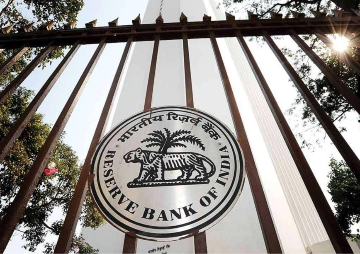 This article is part of the series — The Future of the Pandemic in 2021 and Beyond.
This article is part of the series — The Future of the Pandemic in 2021 and Beyond.
“Winter is coming,” said Joko Widodo, the President of Indonesia, during his opening speech at the 2018 International Monetary Fund-World Bank Annual Meeting in Nusa Dua, Bali. Jokowi was describing the trade war between countries referencing the HBO TV series, Games of Thrones. In his speech, Jokowi was depicting that some countries, such as the United States, enjoyed rapid growth but in many countries were struggling to leverage their economic position.
Jokowi’s statement remains relevant and the presence of the pandemic has made the situation worse. Some countries quickly adapted to the pandemic, whilst others could not. Good governance along with technological advancement has become the key to overcome the crisis.
The picture gets more complex with Artificial Intelligence (AI). Many countries have made significant investments in developing AI as one of the ways to be the leader of the world. As many reports have said, the notion of AI in countries’ strategy is more like that of a competitive race. AI is the race of the century, with the belief that, “those who have advanced capacity in AI are those who rule the world.”
Good governance along with technological advancement has become the key to overcome the crisis.
The level of AI discussion is also diverse. Some countries have discussed the ethics while others are still at the level of developing meaningful Internet access. Big and structured data is the key for AI to be well-implemented, therefore, availability of data is key. The problem is, not many countries would like to share its data like France does. This has made the race more powerful and made the gap between countries wider.
Consequently, it has been a cliché where it is easier to be said than done when it comes to convening an inclusive global discourse to develop AI capacity that is transparent and ethical. For example, less-developed countries sitting in the middle, between the most advanced and the least developed countries, are oftentimes being sidelined from the conversation around AI, as the US, China, East Asian and European countries remain leaders in the discourse on digital governance. The OECD's Science, Technology, Information and Policy survey tracked how 38 countries perceive AI to respond COVID-19. Of the 38 countries, the US, China, India, and Indonesia did not respond to the survey. Whilst it is possible that the US and China did not provide answers because the two countries consider that AI should remain secret as competitive assets for their national security, India and Indonesia may have a different rationale, to the extent that these countries cannot maximise the potential of their AI.
It has been a cliché where it is easier to be said than done when it comes to convening an inclusive global discourse to develop AI capacity that is transparent and ethical.
Predicted to be the fifth largest economic power by 2050 and a current member of the G20 itself, Indonesia has been one of these less-developed countries lagging behind in regularising and improving the use of AI. Although Indonesia has issued its National AI Strategy in August 2020, which entails incorporation of such technology within the health sector highlighting: “improving health services through technology innovation of AI that can efficiently reduce the time, broaden the services, and minimise the health services cost for Indonesians,” real-time data that typically supports the use of AI to respond COVID-19 remains a heightened public debate.
The country is still lacking capacity to identify and isolate suspected COVID-19 cases using its national-based contact tracing application, Peduli Lindungi. Moreover, the citizens’ data processing embedded in the application is also in question. As a consequence, until now, Indonesia has not even escaped from the first wave of the pandemic or managed to pinpoint which pandemic wave the country is currently in. When compared with other countries’ epidemic trajectory charts, Indonesia’s epidemic chart has not shown a substantial declining number of cases since the first case was identified in March 2020. On the bright side, this paved the way for bottom-up initiatives from communities such as Lapor COVID-19 and KAWAL COVID-19. They mapped out and analysed COVID-19 case data provided by government institutions and were able to reveal that the data collected in the municipalities area does not align with the number of cases reported nationally. Comparing this trend with South Korea’s AI strategy that has successfully been realised to find COVID-19 treatments and monitor suspected COVID-19 cases, for example, would expose the gap between the countries leading in AI governance (e.g. South Korea) and those who have been left out from the conversation (e.g. Indonesia). Therefore, the hanging question that needs to be addressed globally would be how to ensure the current competitive discourse on AI optimisation can move forward towards a platform where less-developed and developing countries can share and learn the way to optimise, feed, and utilise big data into an efficient AI.
When compared with other countries’ epidemic trajectory charts, Indonesia’s epidemic chart has not shown a substantial declining number of cases since the first case was identified in March 2020.
As Antonio Guterres, the Secretary General of the UN warned that “the future will be much more digital than the past,” the leading countries on AI governance may want to consider to refer to the Roadmap for Digital Cooperation in May this year as the starting point to embed and collaborate with more countries outside the existing working groups. To minimise the gap such as that between Indonesia and South Korea; the accessibility to collect, access, and process data ethically and transparently; supported with much needed capacity and infrastructure to optimise and administer the data within the AI system would require open conversation and collaboration that does not mimic a business-as-usual approach — such as regularising the use of foreign languages in AI governance or hosting the AI working groups in developing countries <12> Jacinda Arden’s recent decision to provide vaccines for Pacific countries might be an example of health cooperation, instead of an instance of AI governance collaboration. However, it is not too late to incorporate such collaboration models to invite less-developed and developing countries to access the governing process of AI strategy, instead of only handing out the end products because if we keep the race without any cooperation, the winter will come soon. And looking at how this pandemic is evolving, all countries — developed, less-developed and developing — will get it.
The views expressed above belong to the author(s). ORF research and analyses now available on Telegram! Click here to access our curated content — blogs, longforms and interviews.



 This article is part of the series —
This article is part of the series —  PREV
PREV


